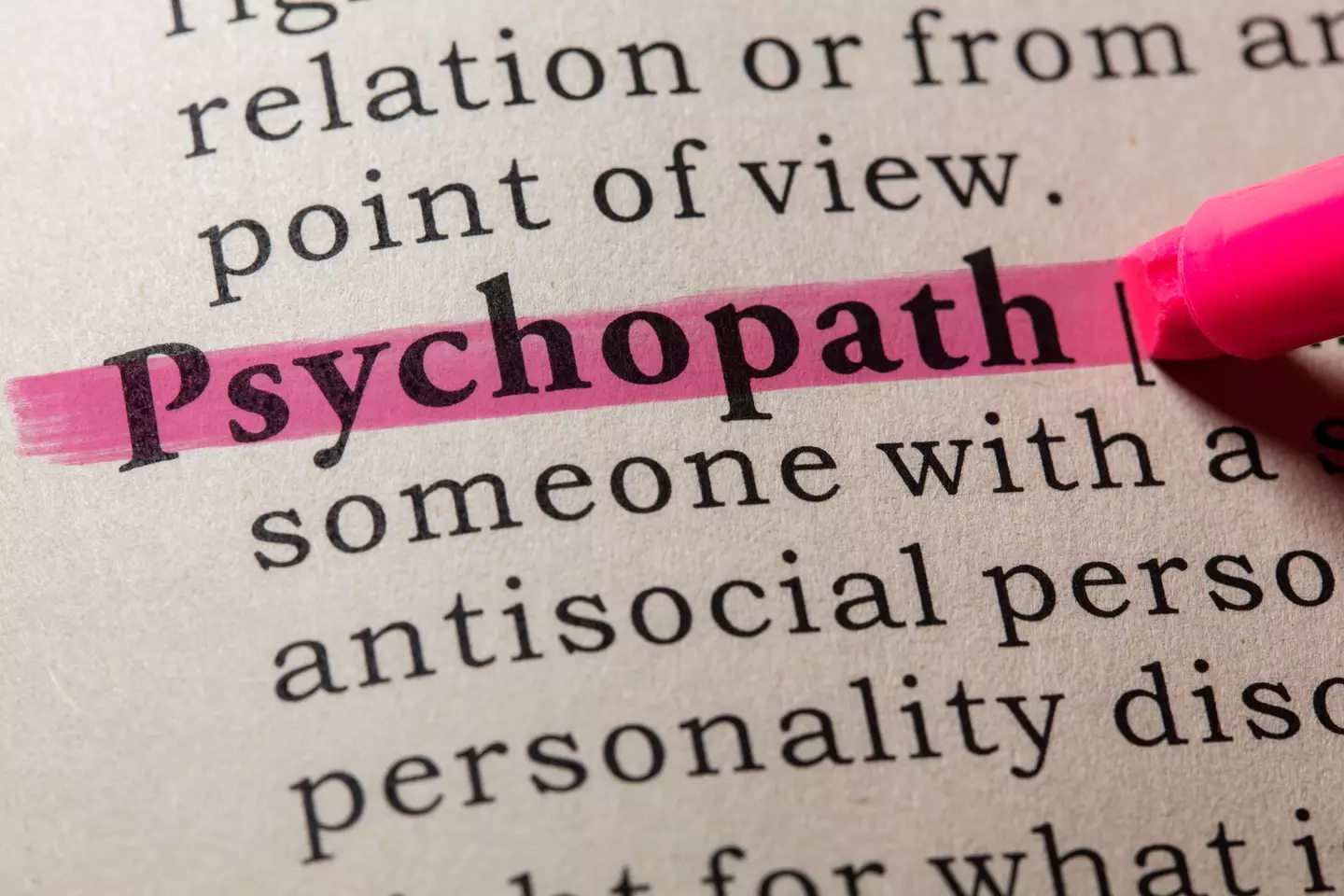
If you’ve ever been called – or called someone – a psychopath, it’s possible that you didn’t actually realise the true meaning of the word that you were using.
One definition of psychopathy from a paper written in 2014 describes the disorder as ‘marked by deficient emotional responses, lack of empathy, and poor behavioural controls, commonly resulting in persistent antisocial deviance and criminal behaviour.’
There are a number of things believed to be involved in the make-up of psychopaths, including genetic influences, but also developmental factors as well.
People seem to be predisposed genetically to the disorder, but their upbringing and development also plays a key role.
Advert
Anyway, in the 1970s a forensic psychologist called Robert D. Hare devised a checklist consisting of questions aimed at diagnosing psychopathy, and that test is readily available online.

Whilst his work was specifically centred on his work with prisoners in Canada, it has since been applied outside of those circumstances.
Obviously, it’s well worth pointing out that just possessing these qualities does not intrinsically mark you out as a psychopath, it’s much more complex than that, but it’s certainly and interesting checklist to read through.
This test – we are at pains to point out – is definitely not in any way as useful as an actual psychological assessment.
Advert
Furthermore, whilst you can run this test yourself, it’s definitely supposed to be done by a professional if you’re to take it seriously.
Disclaimers aside, here’s how it works.
The checklist contains 20 attributes that could contribute to psychopathy, which must be assessed in three categories, ‘does not apply’, accounting for zero points, ‘somewhat applies’, which counts for one, and ‘fully applies’, which yields a grade of three.
All of those scores tally to a total out of 40.
Anyone scoring over 30 – or 25 in the UK – is likely to be a psychopath.
Advert
Amongst the criteria are things like ‘glib and superficial charm’, grandiose self-worth’, ‘pathological lying’, ‘lack of remorse or guilt’, ‘parasitic lifestyle’, ‘promiscuous sexual behaviour’, and ‘criminal versatility’.
However, there are criteria on the list that might be surprising.
Things such as ‘lack of realistic long-term goals’, ‘impulsivity’, and ‘irresponsibility’ are also considered.

The test has been criticised in some circles, with many believing it to be too simplistic or reductive.
Advert
Critics suggest that the test doesn’t account for the variable and ever-changing nature of human behaviour, as well as suggesting that many of the criteria can also be applied to other disorders and conditions.
Still, if you’re interested in running the test for yourself, or on someone you know, you can do that here.
If you're experiencing distressing thoughts and feelings, the Campaign Against Living Miserably (CALM) is there to support you. They're open from 5pm–midnight, 365 days a year. Their national number is 0800 58 58 58 and they also have a webchat service if you're not comfortable talking on the phone.
Topics: Mental Health, Health, Weird